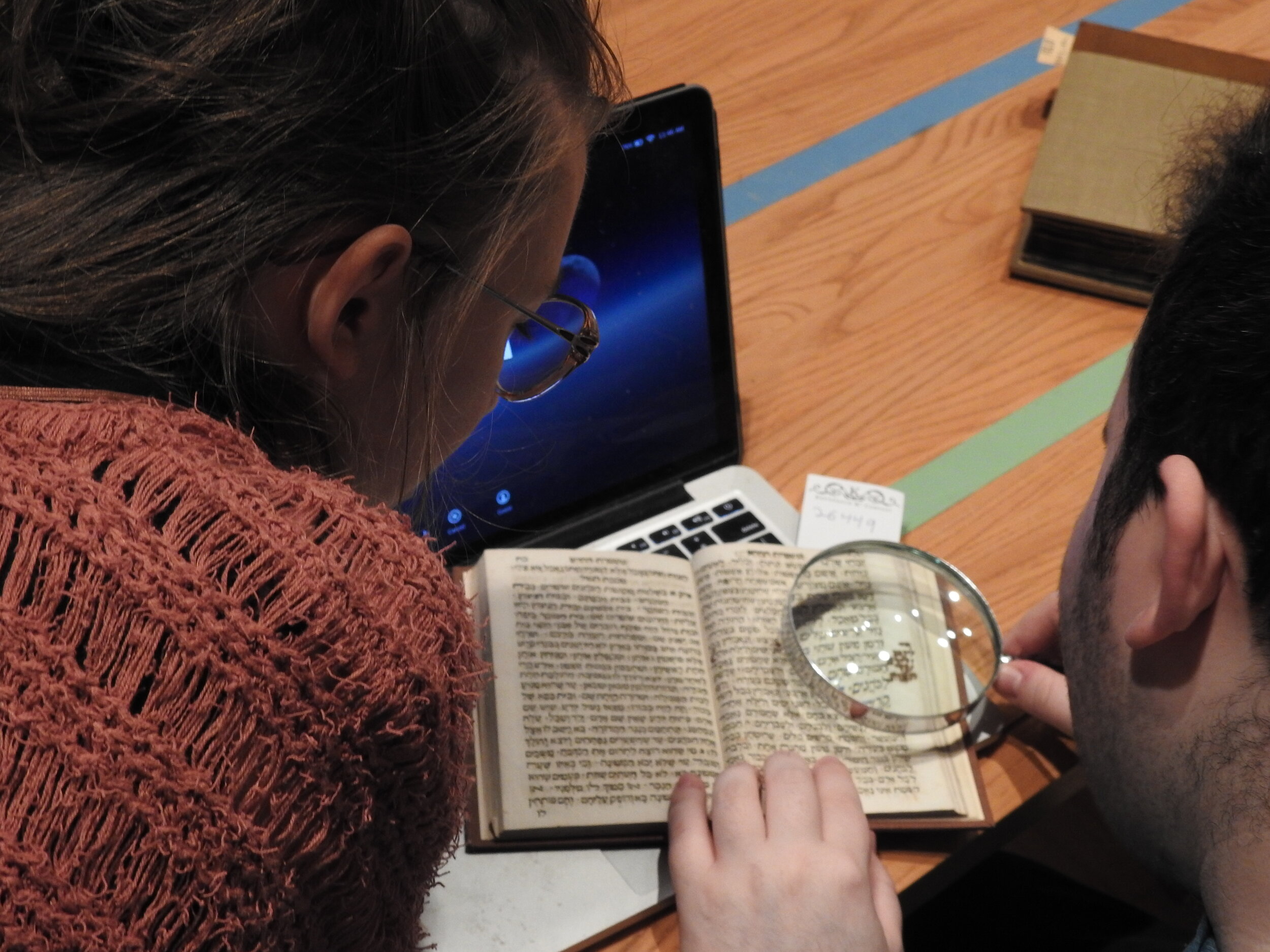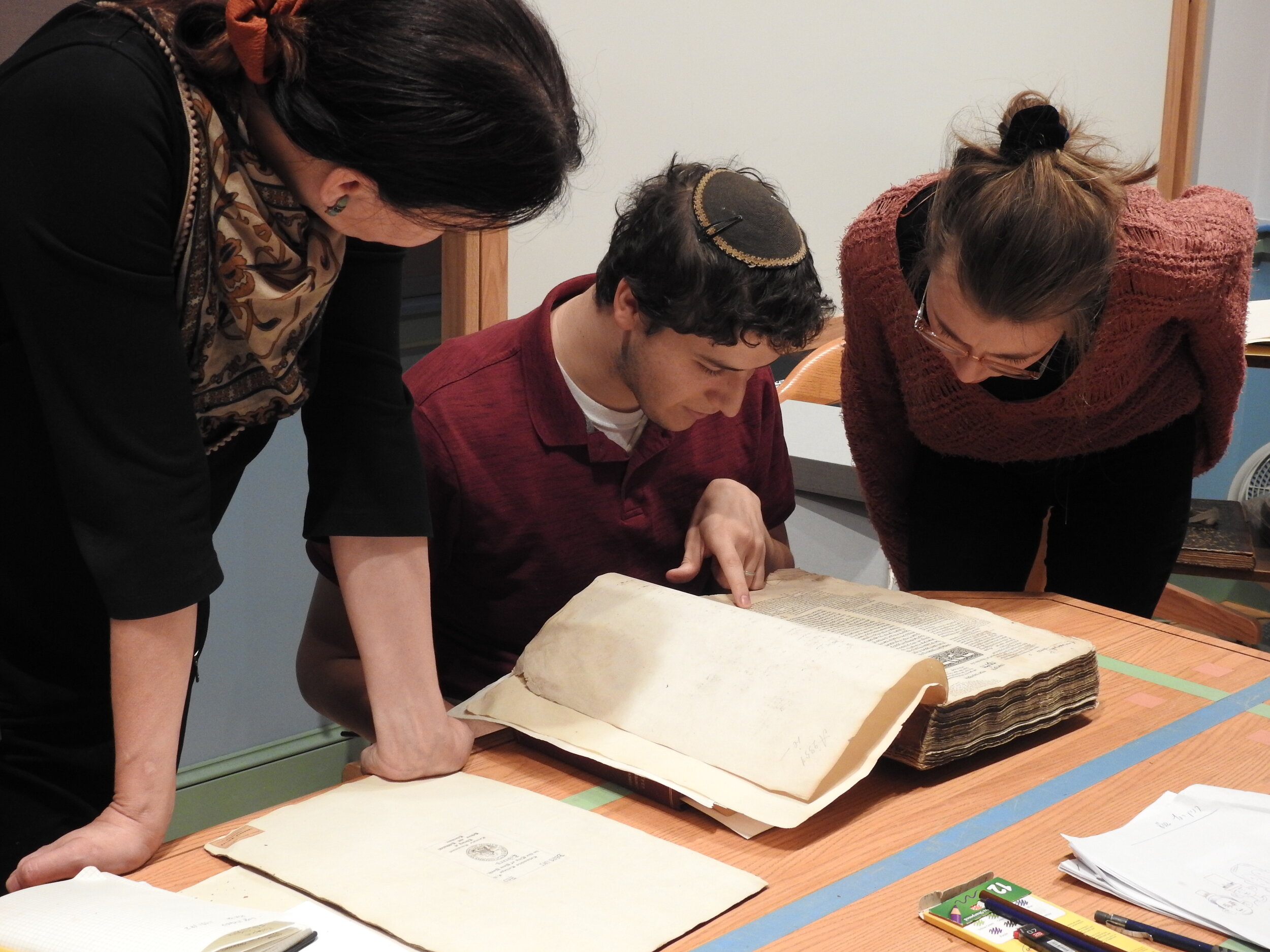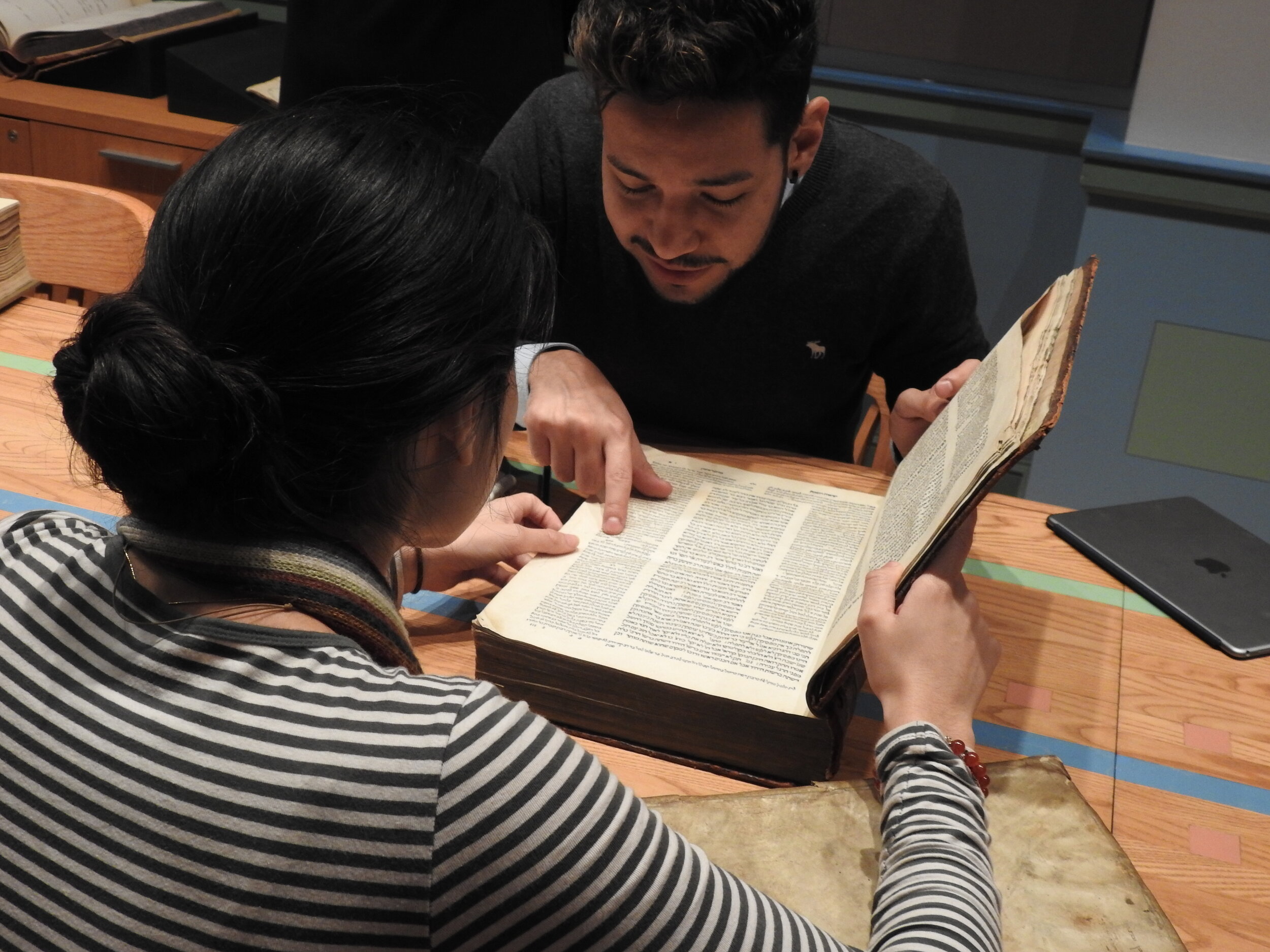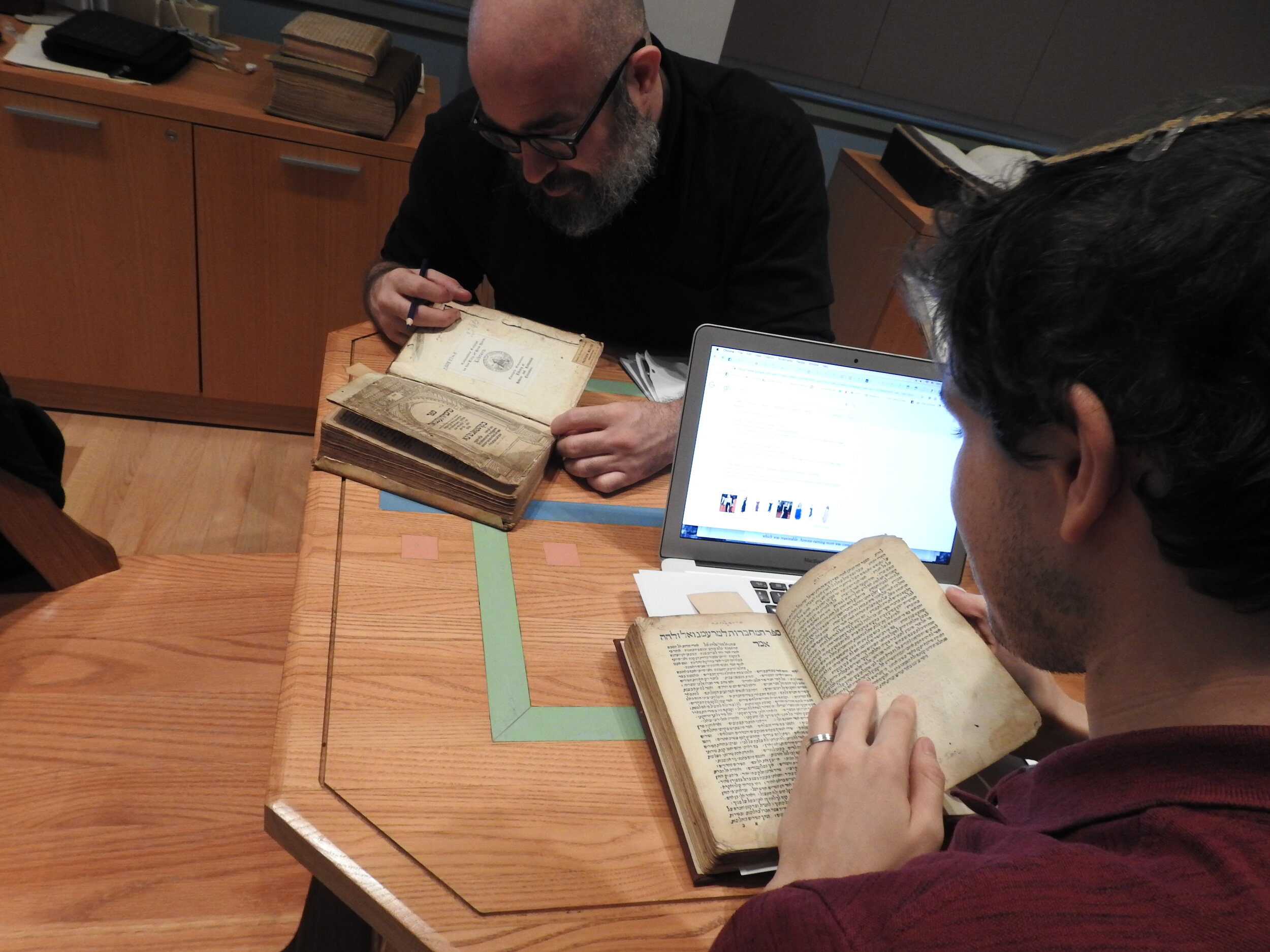Master's Program in Jewish Studies
For questions about the Jewish Studies M.A. program, please email Dr. Isabelle Levy at icl2001@columbia.edu.
The MA in Jewish Studies offers students the opportunity to create a specialized program of study that leads to an enriched understanding of the breadth and depth of Jewish Studies as an academic discipline. The program concludes with a thesis on a focused topic related to the student’s area of interest. Our program helps students prepare for careers as scholars or as professionals in a variety of fields, including education and the nonprofit sector.
Students in the program are encouraged to make use of the resources of Columbia's Institute for Israel and Jewish Studies, one of the most distinguished and longest-standing institutes dedicated to the academic study of Jewish literature, religion, history, culture, and philosophy and which brings together faculty and students across a range of disciplines and departments. MA students will have the opportunity to study with these professors in a variety of pedagogical and curricular formats. The program welcomes both full- and part-time students.
Degree Requirements
Jewish Studies students must complete 32 credit points and must write a thesis to graduate. These 32 credits must be at the graduate level (4000 or higher). Specific degree requirements are:
Topics in Jewish Studies Seminar (JWSTGU4990)
Two Courses in Jewish History
Six additional courses from within the Jewish Studies course offering or in fields relevant to the student’s Jewish Studies research
Thesis Seminar: Research Seminar (G4990) or Supervised Individual Research (G4999)
There is no language requirement for the Jewish Studies M.A. degree.
Please be advised that courses taken as P/F (pass/fail), taken for R credit, and below the 4000 level CANNOT count towards the degree requirements. A total of 2 RUs (Residence Units) must be completed before a student is eligible to graduate with an MA degree.
Students are encouraged to select appropriate courses each term in consultation with the Program Director and to use the Jewish Studies Checklist to track their own degree progress.
Thesis Topics
For information regarding the thesis, see the Thesis Policies. Previous Jewish Studies theses are available for students to read in the IIJS office. Past titles include:
Modigliani, Chagall, Soutine and Kisling: Self-Representation, Identity and Integration in the Parisian Art Circle
An Exodus from the Self: Universalism(s), Memory and Identity in the Memoirs of Twentieth-Century Egyptian Jews
From Wolves to Rats: Understanding the Role of Animals in the Shaping of the Nazi Ideology
When Theodicy Fails
On the Question of Maimonides and Creation
ETS HAIM: Tradition and Innovation in Jewish Education
Jewish Rights in Colonial America
Rome and the Bar Kokhba Rebellion…What the Coins Reveal
Admissions Information
For complete admissions information, including essay requirements and deadlines, please click here.
To apply, please visit the GSAS Admissions website.
All international students whose native language is not English or whose undergraduate degree is from an institution in a country whose official language is not English must submit scores of the TOEFL or IELTS exams. For more information, refer to the Information for International Students page.
Academic Policies
For more on the Academic Policies and Procedures of the M.A. in Jewish Studies, click here.
Potential Funding
The IIJS and GSAS can, upon occasion, provide limited merit-based fellowships towards tuition.
FLAS Fellowships are available for students entering in the fall, and eligible languages include Hebrew, Arabic, Persian, and Portuguese, among others. If you are applying for the FLAS Fellowship you must submit your admission application, including the FLAS essay, by the fellowship application, which usually falls the month before the GSAS MA application deadline, so please plan accordingly.
For other fellowship opportunities, we encourage students to refer to fellowship databases, e.g., the Center for Jewish History and the Association for Jewish Studies.
Contact
For questions about the Jewish Studies M.A. program including course registration, requirements, and completion of the degree, please email Dr. Isabelle Levy at icl2001@columbia.edu.
Good Academic Standing
In order to continue pursuing the degree, all students must remain in good academic standing. Good standing includes maintaining course grades at or above a B grade. Good standing also includes timely submission of all course related work. In order to maintain good standing, any student wishing to take an INC (incomplete) for any course may do so only with the approval of the program’s Academic Advisor.






